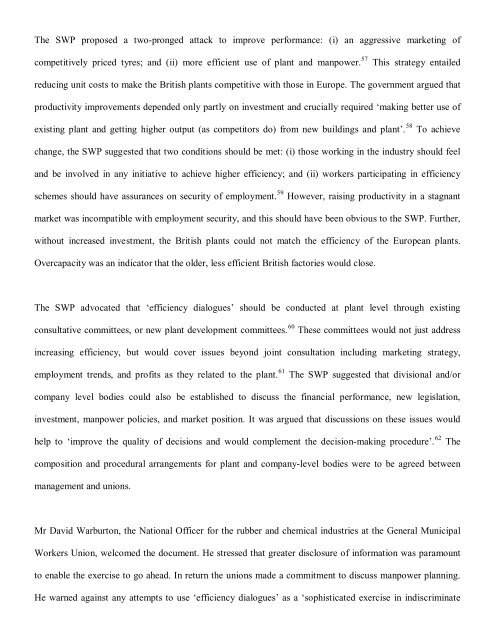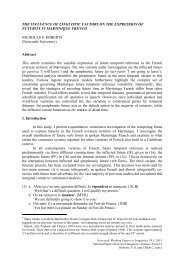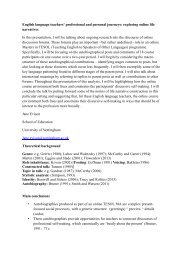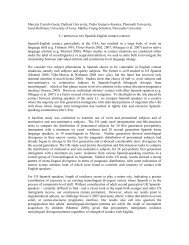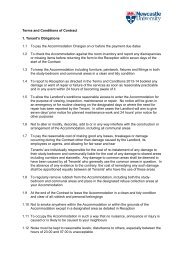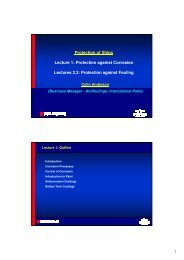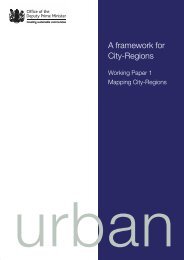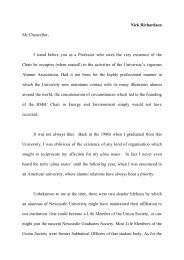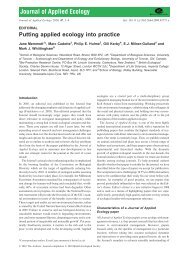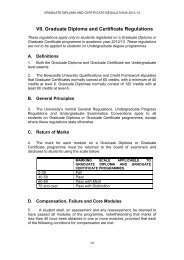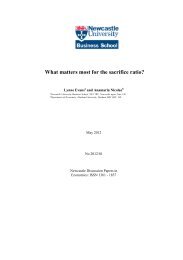The decline of the British tyre industry - Newcastle University
The decline of the British tyre industry - Newcastle University
The decline of the British tyre industry - Newcastle University
Create successful ePaper yourself
Turn your PDF publications into a flip-book with our unique Google optimized e-Paper software.
<strong>The</strong> SWP proposed a two-pronged attack to improve performance: (i) an aggressive marketing <strong>of</strong><br />
competitively priced <strong>tyre</strong>s; and (ii) more efficient use <strong>of</strong> plant and manpower. 57 This strategy entailed<br />
reducing unit costs to make <strong>the</strong> <strong>British</strong> plants competitive with those in Europe. <strong>The</strong> government argued that<br />
productivity improvements depended only partly on investment and crucially required ‘making better use <strong>of</strong><br />
existing plant and getting higher output (as competitors do) from new buildings and plant’. 58 To achieve<br />
change, <strong>the</strong> SWP suggested that two conditions should be met: (i) those working in <strong>the</strong> <strong>industry</strong> should feel<br />
and be involved in any initiative to achieve higher efficiency; and (ii) workers participating in efficiency<br />
schemes should have assurances on security <strong>of</strong> employment. 59<br />
However, raising productivity in a stagnant<br />
market was incompatible with employment security, and this should have been obvious to <strong>the</strong> SWP. Fur<strong>the</strong>r,<br />
without increased investment, <strong>the</strong> <strong>British</strong> plants could not match <strong>the</strong> efficiency <strong>of</strong> <strong>the</strong> European plants.<br />
Overcapacity was an indicator that <strong>the</strong> older, less efficient <strong>British</strong> factories would close.<br />
<strong>The</strong> SWP advocated that ‘efficiency dialogues’ should be conducted at plant level through existing<br />
consultative committees, or new plant development committees. 60 <strong>The</strong>se committees would not just address<br />
increasing efficiency, but would cover issues beyond joint consultation including marketing strategy,<br />
employment trends, and pr<strong>of</strong>its as <strong>the</strong>y related to <strong>the</strong> plant. 61 <strong>The</strong> SWP suggested that divisional and/or<br />
company level bodies could also be established to discuss <strong>the</strong> financial performance, new legislation,<br />
investment, manpower policies, and market position. It was argued that discussions on <strong>the</strong>se issues would<br />
help to ‘improve <strong>the</strong> quality <strong>of</strong> decisions and would complement <strong>the</strong> decision-making procedure’. 62<br />
composition and procedural arrangements for plant and company-level bodies were to be agreed between<br />
management and unions.<br />
Mr David Warburton, <strong>the</strong> National Officer for <strong>the</strong> rubber and chemical industries at <strong>the</strong> General Municipal<br />
Workers Union, welcomed <strong>the</strong> document. He stressed that greater disclosure <strong>of</strong> information was paramount<br />
to enable <strong>the</strong> exercise to go ahead. In return <strong>the</strong> unions made a commitment to discuss manpower planning.<br />
He warned against any attempts to use ‘efficiency dialogues’ as a ‘sophisticated exercise in indiscriminate<br />
<strong>The</strong>


